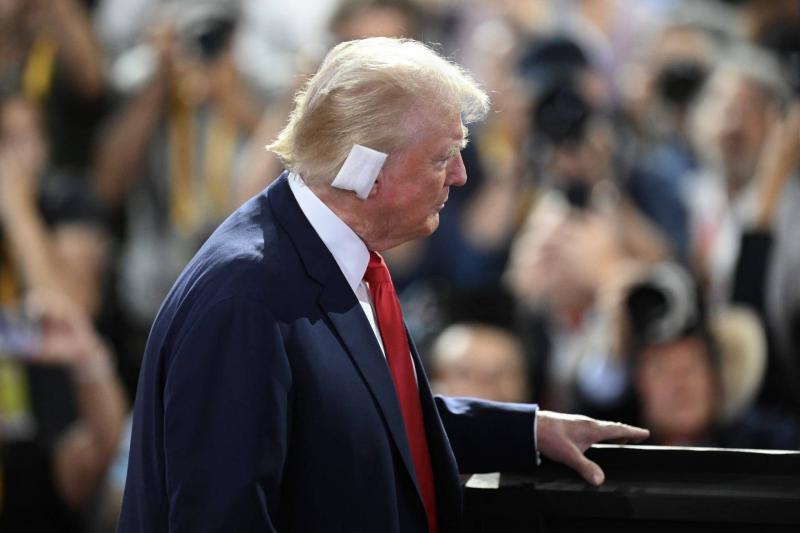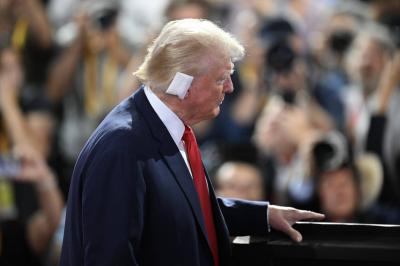Former President Donald Trump narrowly escaped with his life last Saturday when a gunman targeted him using an automatic rifle of the "AR-47" type. The former president was speaking at an event in Pennsylvania when the bullet grazed his ear, missing his head by mere millimeters. Many view his survival as a miracle. For a few days, it seemed possible to temper the angry mood in America, and the biting criticism that characterizes this election season could be adjusted. However, three days later, the rhetoric from both "Democrats" and "Republicans" became bitter and polarized once again.
On July 15, the "Republican" convention opened in Milwaukee, Wisconsin, where attendees were excitedly cheering for Trump's miraculous survival and the announcement of his selection of Senator JD Vance from Ohio as his vice-presidential pick. Vance is only 39 years old, making him about 40 years younger than Trump. If elected, he would be the third youngest vice president in U.S. history. Vance also has no government experience apart from spending two years as a senator. However, he is the author of the bestselling book "Hillbilly Elegy: A Memoir of a Family and Culture in Crisis," which describes his upbringing in poverty and drug-ridden areas of Ohio and parts of the "Rust Belt."
Before his book, Vance served in the U.S. Marine Corps as a lance corporal and then attended Yale Law School. Vance was also a successful businessman before venturing into politics. In his early political career, Vance was a fierce critic of Donald Trump, describing him in severe terms and questioning whether Trump could become "America's Hitler." Over time, however, Vance's opinion shifted, and he has now become one of the most loyal and enthusiastic supporters of the "Make America Great Again" (MAGA) movement inspired by Trump.
Theoretically, Vance's background and beliefs are expected to help Trump in key "blue-collar" battleground states like Michigan, Wisconsin, and Pennsylvania, which have large numbers of white working-class males. Beyond domestic politics, Vance's selection may have been an unsettling surprise for America's NATO partners and Ukraine, also inciting anger in China. Vance has been an undeclared critic of Biden's foreign policy. He is a strong supporter of Israel, partially stemming from his strong Christian beliefs, and has shown little sympathy for Palestinians while urging restraint towards Iran. He also strongly opposes continued U.S. military aid to Ukraine, believing Trump (not Biden) would be in a better position to negotiate with Russia to end the war. Like many "Republicans," he supports the principle of NATO but complains that European and other members should pay more for defense. Vance believes China poses the greatest threat to U.S. security and that the resources spent on Ukraine detract from efforts to support U.S. allies in Asia.
His statements regarding Taiwan are certain to provoke anger in Beijing, especially since, like Trump, he also supports imposing higher tariffs on Chinese exports to the U.S. At this stage of the political campaign, the statements made by the opposition party about domestic and foreign policy cannot be taken literally. No one knows what Trump might do if he were to win the White House and become president on January 20, 2025. Much will depend on the situation he inherits domestically and internationally. He will have to consider that some influential Republican heavyweights, including his former primary rival Nikki Haley, strongly support Ukraine, and if the war reaches a critical battlefield moment, the U.S. is unlikely to abandon a country that is supported by many Americans and Europeans. However, Trump is always full of surprises, and in this case, like others, we do not know what will happen.




